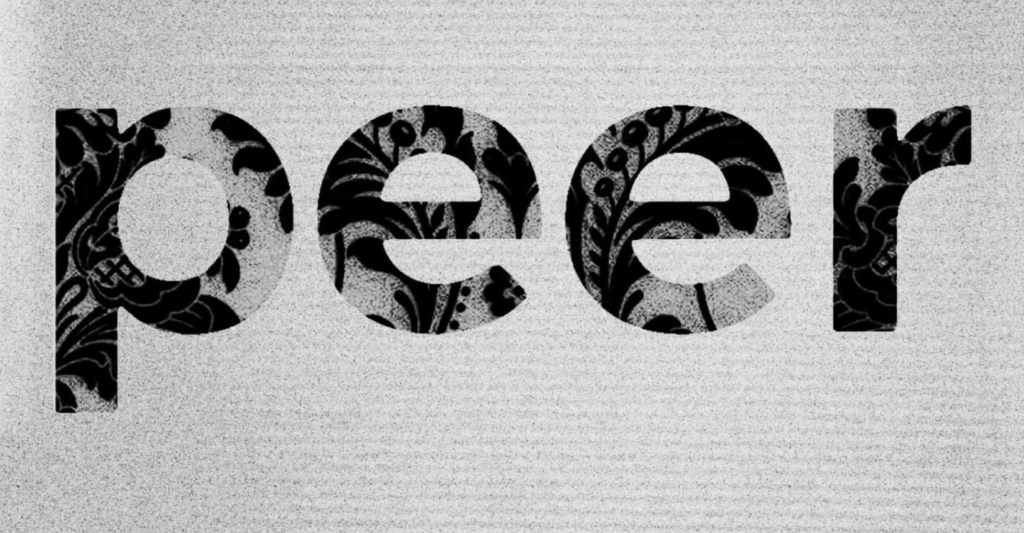
In the twilight hours of what seems to be the tail end of the pandemic, Seattle-based Cory Simpson and San Francisco’s Max Gardner got together to form a label that would showcase the abilities of Techno artists in their own backyard.
From their first release last year to the present release with LA’s Drumcell, they’ve only just begun to forge a label based on community, respect, and most importantly, letting the sound of the music stand on its own without posing or overhyping the musician before the music.
Dirty Epic: Cory and Max, how did you two first meet?
Cory: Max and I met via my buddy Sam who moved back to the Bay Area from Seattle. He and I had mutual friends from Denver where he’d been living and told me I HAD to meet Max.
Max: I first met Cory during a visit to Seattle back in 2017. I had never been there before and one of our mutual friends (InThinAire) who knew us both separately had connected us and suggested we do a show together. Cory was starting up his DEPTH series at the time, and he invited me to play for a Wednesday night event.
I definitely didn’t expect it, but when I landed at the airport, Cory was standing there holding a sign with my name on it. He welcomed me with warm arms. He even had a bag of all kinds of goodies and gifts waiting for me when we arrived at his car. We hit it off right away and ended up hanging out a bunch over that week. Cory showed me all around the city and even drove me out to the beach at Deception pass. We formed a solid bond and have kept in close contact ever since.
DE: What was the basic idea for Peer as a record label, and why did you feel it was necessary to start it?
Cory: During the pandemic, we were looking at what we could do to showcase the talent of all of our friends. I was working on uniting a lot of my people and past with everything I had and have been doing in the PNW and the West coast. Max and I began talking about starting a label where we would release our friend’s music along with remixes from artists globally.
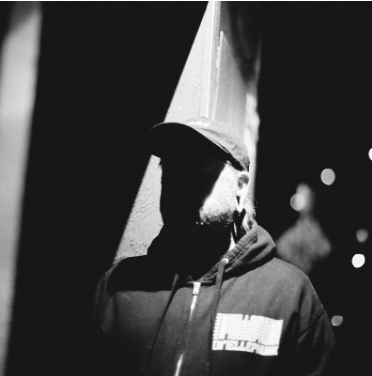
Max: Starting a label is something I’ve wanted to do for the last 12 years. I had one or two attempts at doing a more underground DIY type of label based on VA releases with tapes and CDs through my event series (Direct to Earth), but I always intended to do something more serious, more legit. I’ve never really spent much time sending out demos to labels I admire and to be honest, that whole process stresses me out. Really, there are multiple reasons we started Peer, and that’s different from the general idea behind it.
Cory: We know so many brilliant producers and people that it just felt like this was the answer. We could unite our friends together and also show the world why they needed to know our people.
Max: The idea behind the label is that we’re all Peers, and it’s basically an outlet for us and for people we fuck with. Some are touring the world, others are local legends, and others are totally under the radar. We know folks in all 3 of those categories who are making serious heat that deserves to be heard. Peer is a statement against superstar bullshit. The feel/vibe/look of the label is realism and authenticity. We want to detach ego and looks, and just bring it back to when music was all that mattered.
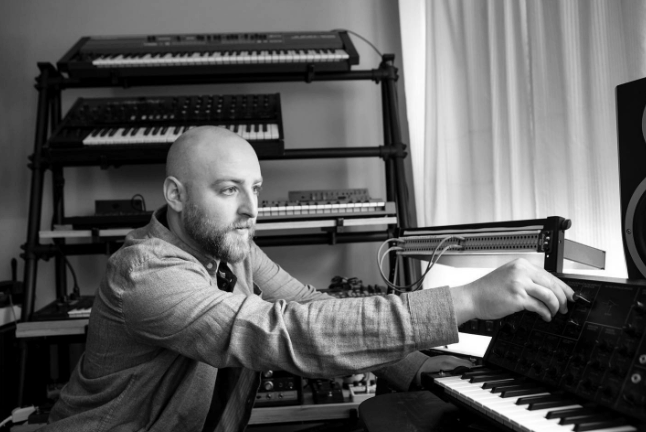
DE: There have been several other record labels in the cities of SF, Portland, Seattle, Vancouver, and LA but nothing with a broad scope of all these regions put together, maybe with the exception of From 0-1 who had a blend of talent from the West Coast and abroad. Do you feel like West Coast Techno is strong enough to stand on its own?
Max: For the kind of music we like, other than a handful of cats from LA who we very much love and respect, the West Coast has been largely ignored by the rest of the globe. It sort of has its own timeline for a lot of different types of dance music. A lot of the dope older artists would leave our creative brewing pot to go blow up elsewhere. However, it does feel like now, the West Coast is fostering more talent (in our sound) than maybe ever before. There are some forward-thinking acts who are really pushing the envelope and cranking out amazing material. It feels like the rest of the world is tuning in now to see what we’re all about.
Collectively, we’ve already proven the West Coast can absolutely stand on its own. Cory is in Seattle, I’m in Oakland/SF, and Drumcell and Secus are in LA. So it’s obvious that we’re deeply rooted out here. We’re holding it down for the West Coast.. westside for life and all that. I’ve never liked rules or limitations though. Peer is for folks we fuck with without limitations. Insolate of Croatia remixed one of my songs on 001. Uun, who’s based in Detroit, remixed Secus on 002. The door will be open for our close peers in other regions to get involved too, though most of what we’re doing reflects what’s happening in the West Coast underground Techno world.
Cory: When it comes to what separates us and why we feel the need to exist… well, yes there are a few labels up and down the coast, but our sound, our friends’ sounds, and the many facets behind the scenes make us unique. We aren’t hyper-focused on one aspect or interested in Peer being homogenized into one specific sound and concept.
While some labels are multi-owned and span the coasts similarly, none do so with the specific mission of representing sounds and artists from top to bottom across the whole coast. And none were focused on it being only friends involved. It’s not about the money or hype. It’s about community.
And showing the world why our community matters. If you haven’t heard about our community yet, you’ll know the names of the international artists who support us, have played for us, and are providing remixes for Peer, thus growing everyone’s reach and the excitement towards hearing and supporting them equally.
DE: Who are some techno musicians out here that you have a keen interest in that the world should know about?
Cory: U-SRD hands down. Raymond Yamanaka is also one I think you’ll be seeing a lot of here soon. Our friend, Sean Raya, has been making some crazy designer Techno lately… this list could go on for a while.
Max: I guess I’d start with my label partner Cory. There’s Sean Raya, who’s got a meticulous ear. Folks like Secus, Annika Wolfe, Stephen Disario, and David Castellani, who are all out of LA. Adra, Taraval, Michael Claus, and U-SRD in SF. Raymond Yamanaka in Seattle. Also JX-216 and Rubidium in SF. Lindsey Herbert, who’s now based in AZ, and her partner Pleasures. Müzmin, who I think a lot of folks have already heard. Younger cats like Freeman713. Then there’s some OGs like Drumcell, Truncate, Silent Servant, Developer, and JGarrett. Oh yeah, and some guy named Sean Ocean. There are also plenty of dope techno acts who lived in San Francisco for a while, and eventually left because they felt they needed to in order to tour.. Matrixmann, Sutekh AKA Rrose, Jamaica Suk, etc.
DE: Does Peer have a particular aesthetic you’re reaching for, or is it a showcase of musicians in your peer group?
Cory: Peer is exactly that. It’s our peer group. This is us, and these are our people, we are Peer
Max: I mentioned this before, but the aesthetic is realism; The small details. Peer is an outlet for us and our peers. People we are connected with, whether they are on the West Coast or not, touring or not, pretty or not. It’s a chance for egos to be stripped, and for looks or fashion to be ignored. It’s a place for music and authenticity.
DE: With this newest release from Drumcell, can you tell us more about how that came about? What are your thoughts on the choices you’ve made to feature these tracks on this release?
Cory: As far as Drumcell, Max and Moe have a connection that led to this coming together. And Moe has been an inspiration to all of us. Not only musically and as a DJ, but as a promoter and what they have achieved in their career. What he’s done for the West Coast as far as underground Techno is unparalleled. I think if you look at West Coast Techno, he’s at the top of that list.
Max: Well, you’ll probably have to ask Moe about that.. All you’ll get from me is a story that may or may not be true about wandering the desert after drinking water from a funky-looking cactus, roaming into some town of avocados where the pits are black hearts, and then being stuck in some kind of portal where he was constantly falling and falling… Yeah.
Drumcell: All of what Max said is mostly true, but I didn’t just “fall into a portal”… I asked a fairly dapper-looking vagrant for directions, since I was somehow deeply confused and lost in ways I can never explain. I didn’t want to be rude, so to break the ice, I politely asked him how his day was going. He responded to me with “the concept of happiness slipped away, some novel sense of misery certainly has seeped in. Kind of feels like the relentless nagging of depression has formed a soft glove around my heart that squeezes gently enough to annoy me, but not enough for me to wish for my own death”… I felt compelled to know more, and the discussion warranted further discourse so he invited me in for tea. I must have taken a bad step on the way down to the brook where he lived and found myself falling into a hole that bended time and space—a forever free fall at terminal velocity—but I was as calm and content as a sea otter laying on the warm sand.
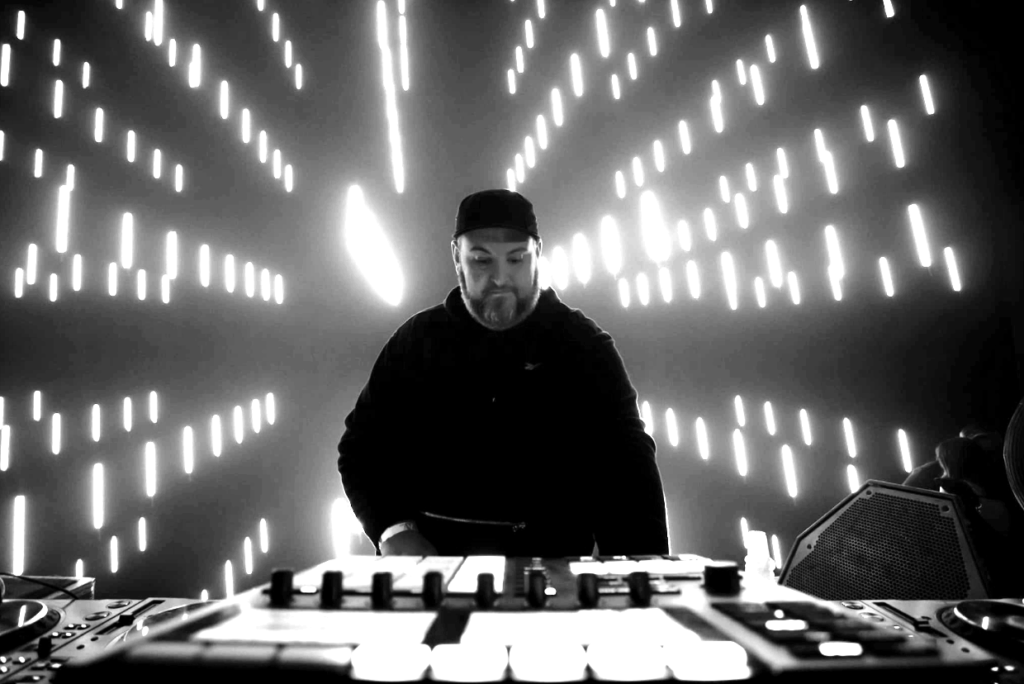
DE: Drumcell, how does your Techno work under Drumcell differ in mindset from your Hypoxia moniker? Where do you draw the line between the two identities aesthetically speaking?
Well to be honest, they are two completely separate identities. Drumcell is purely my outlet for Techno and DJing, whereas Hypoxia explores a more cinematic, thought-provoking world in Beatless music. I’m hesitant to call it ambient, but it often slips into that category because most of the releases lack a rhythmic element. This isn’t done on purpose, it’s just that Hypoxia tracks are all performed and recorded in one live take and usually consist of me taking one synth out of the studio and doing something with it in unconventional places. Improvised pieces of meditative movement through music.
DE: As one of the scene leaders in LA’s Techno history that helped put Los Angeles on the world stage, especially with Droid Recordings, Interface, and Observe, what do you think about a predominantly West Coast label taking root in this day and age?
Drumcell: When we started Droid, our mission was very much about representing a West Coast sound as well. Although the scene was much smaller then, and there were only so many people we could rep, it became an outlet where we released mostly West Coast artists such as Truncate, Drumcell, Raiz, Developer, Ryan Jones, Hyperactive, Automat, and so many other Cali-based people. Soon, we expanded to releasing music only from North American artists as our network grew with friends like Dustin Zahn, Kyle Geiger, Luis Flores, and so on. We always felt that the North American scene needed representation, and there was no reason to bring sand to the beach by signing EU artists. At the same time, we did welcome many EU artists as remixers, having had contributions from James Ruskin, Function, Speedy J, Brian Sanhaji, and so many others.
We always welcome more and more domestic artists helping the scene grow, and when Max told me his concept for Peer, I was very excited about the idea and offered my full support. This is what our community needs. More fresh talent helps our network grow in a consistent and quality manner.
DE: From your perspective, where do you see yourself and the scene out here at present?
Drumcell: It’s not an easy question to answer, but I can say I’m always honored to be still doing what I’ve been doing for many decades. I’ve learned in my later years how easy it is to take things for granted while in the hustle and bustle of this art form. I’ll never allow myself to make that mistake again. At the same time, I’ve always seen myself as a musician first, and I strive to grow as an artist, but at this point in my life, the direction I find myself growing isn’t exclusive to Techno.
My endeavors with our project BELIEF DEFECT and previously mentioned Hypoxia seem to be a more natural growing part of my creative process. Of course, Techno is still a major part of what I do. and I still love it in its purest forms, but I no longer maintain the youthful exuberance needed to do as much labor intensive shit as we used too. At some point, breaking into warehouses and throwing illegal undergrounds isn’t as easy to do every month as it used to be. I’m very happy to see a new generation of artists stepping in carrying the torch forward to new generations. I’m also grateful to be able to still participate in it when I can and feel inspired to do so. We still continue on with our OBSERVE events, yearly shows in Detroit, Chicago, NY and so on and so on. But certainly at a much lesser capacity than when DROID had its foot on the pedal with INTERFACE events.
DE: Where do you think the scene is heading?
Drumcell: It’s hard to say to be honest, but it has been growing exponentially larger. And bigger isn’t always better either. At the same time, I feel like older generations have a responsibility to keep the historical context in perspective for younger generations. I’ve always felt strongly about the fact that if you don’t know where the music you love came from, then you will never have a clear idea of where it’s going in the future. We have already seen this happening collectively. When you see a famous social media profile ask the general public who their fave techno DJ is.. When you start reading through all the names being dropped in the comment section.. It seems like people are living in an alternate reality. The names most mentioned have very little to nothing to do with Techno and its history. It just becomes instantly obvious that the knowledge of this music and its history have been lost among the young, post-EDM generations. It’s easy to sometimes become disillusioned with what’s happening to a culture of music that has been part of your life for nearly 25 years. It’s not all doom and gloom though, there are still really cool pockets of small communities that’re flourishing and blazing a new path. We just all need to do our part to help guide the community.
DE: Ideally, where would you like to see it go, as it relates to your music and the community at large?
Drumcell: I’d like to see our peers and leaders of our community who are involved with our scene do so with their integrity intact and not rely on gimmicks and capitalistic behavior to cash in on this culture. Stop chasing only what’s popular and “what the kids want” just to deliver instant gratification for the sake of profit. We need to lead, expose new artists, and teach the youth about the older artists; a good balance of fresh faces and respecting those that we stand tall on the backs of their hard work.
Being a promoter or a DJ isn’t just about following what’s trendy and giving people what they want. It’s about challenging music lovers, gaining their trust, and provoking thought through our art. Also, we need to speak to the music fans, the dancers, and consumers of this music.
Drumcell: We need to tell them to support their local promoters, support their local DJs, show up early, and catch the opening act. Like and share their friend’s art, don’t only go to events that they know the name of or you see has the most followers on Instagram. Be a contributing part of the community. Always give more than you take. Dance and holler when you’re on the dancefloor, stop just standing in front of the DJ with your arms crossed staring intently at what button they are pushing. The vibes at events are contagious, and the more you participate actively, the better everything is.
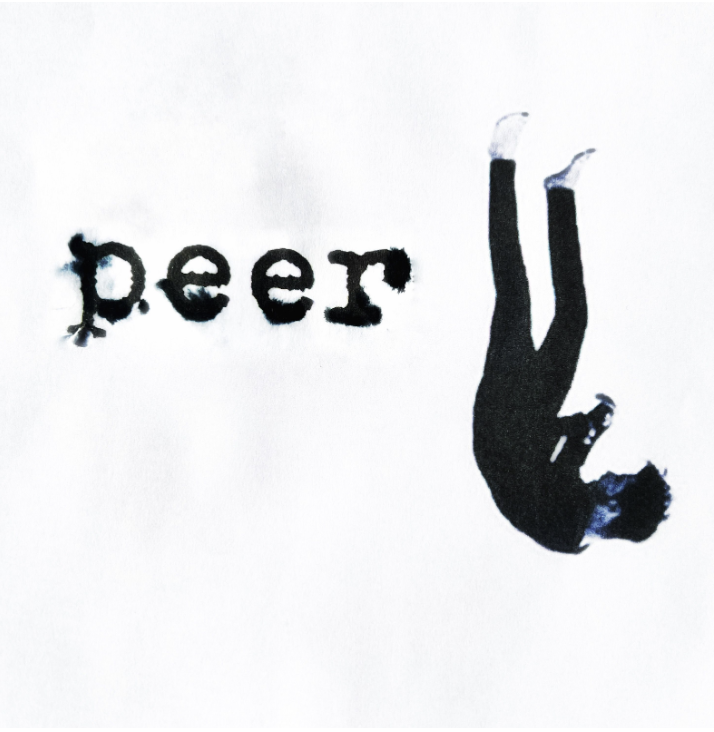
DE: Last question for everyone: What’s the wildest thing you’ve seen at a club, party or rave?
Drumcell: There is no way in hell you have time for these stories, and they might elevate to situations that some readers may not really want to know about.
Cory: I’ve been working in clubs and rave events for 30 years. I’ve seen too many things. One of my most memorable moments however would be seeing a very very very young Daft Punk play in a tent-shielded mud pit in Wisconsin at 3am for the first time in America. I think this was ‘95?
Max: [Refused to comment.]
-Sean Ocean
Check out Dirty Epic music recommendations here.
Listen to our podcasts here.
Find out more about our Events here.
Listen to our review picks here.

